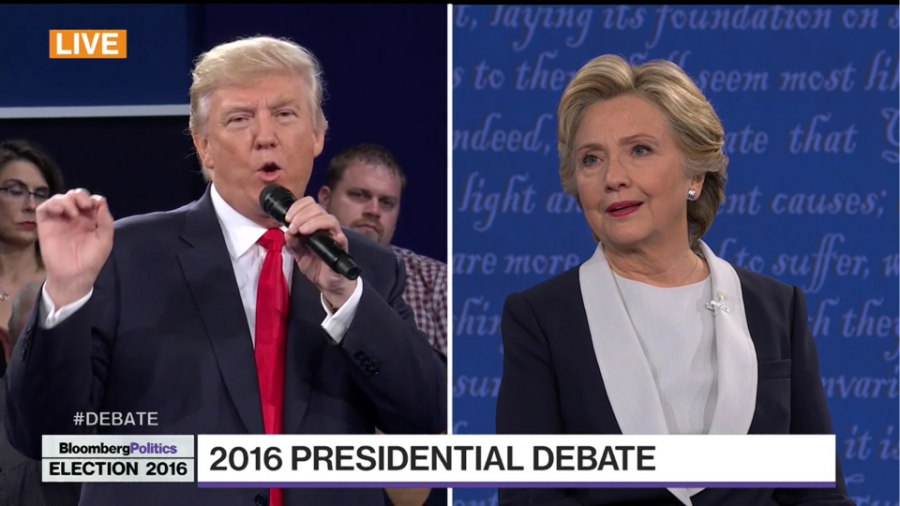In the second presidential debate, the topic of foreign and domestic terrorism has reemerged in the political scene as a disputed conflict.
In light of the stark contrasts between the ideologies of this year’s candidates, Hillary Clinton and Donald Trump, the amount of undecided voters who have not chosen a candidate is unusually large according to political analysts.
One of the more contested points of the debate was the issue of terrorism in the Middle East, specifically in Syria. Clinton and Trump split over the methods that would be used to treat war victims and punish perpetrators.
The number of Syrian refugees entering the United States continues to increase. In September 2015, Obama promised that at least 10,000 refugees would come to the U.S. and met this goal in early August 2016. More refugees are expected to come into the United States due to the increase in the number of refugees permitted to enter the country.
At the presidential debate on Oct. 9, Clinton relayed her plans for the Syrian refugee crisis.
“We need to bring these people over,” said Clinton. “Think of the young women and children. We can’t ban people based on religion.”
On the contrary, Trump detailed the possible threats of the U.S. accommodating more refugees. Unlike his prior proposal in December 2015, Trump no longer supported his ban on Muslims from entering America. He promised a complicated system of vetting to report suspicious people and stop “radical Islamic terror.”
In a description of his plan for national security, Trump said, “We have to be sure that Muslims report something when they see something wrong.”
On another note, the billionaire presented his fears on Obama’s current refugee plan: “[Syrian refugees] will be the great Trojan horse. Hundreds of thousands of people, and we know nothing about them.”
According to APUSH teacher David Gomez, he believes that the system of vetting mentioned by both Trump and Clinton needs further elaboration before its installation.
“It’s a relatively new term in the context of immigrants,” said Gomez. “Vetting is a system meant to promote security and safety. However, as history shows, it may target innocent people in hopes of promoting [these goals].”
The two candidates also had polar views on the situation in Aleppo, where a percentage of the refugees have come from.
The city became the center of the Syrian civil war in 2012, and the militants have been combatting Syria’s president, Bashar al-Assad, for the past five years. Starting from that time, the United States has lent funds and arms to the rebels, while on the other side, Russia makes air strikes for Assad’s government.
“It isn’t [America’s] duty to let the refugees in,” said junior Edison Bai, who watched the debate. “And yes, there are possible threats. But the main cause of helping [the refugees] is to allow the people who have suffered in the town a second chance.”
On the other hand, Trump argued that further U.S. support should not be given to Aleppo, stating that “[The city] has already fallen.”
In addition, Trump indicated that Russia should be used as an ally to fight IS (Islamic State). However, Clinton stated that Russia and Assad “need to be held accountable for war crimes in Syria.”
“I agree with letting in more refugees,” said senior Ethan Miller who also watched the debate. “I also agree that we need to hold Russia, Assad, and other instigators accountable for the violence that is occurring.”
Despite the fact that multiple political analysts agreed that Trump performed better than in the previous debate, many criticized the businessman for wanting to withdraw support from Aleppo. On Twitter, some users said that he was evading the question by claiming that the city had already fallen.
“If I had to choose, I would say Clinton over Trump, even though Trump won the debate,” said Miller. “[But] I prefer Jill Stein.”


